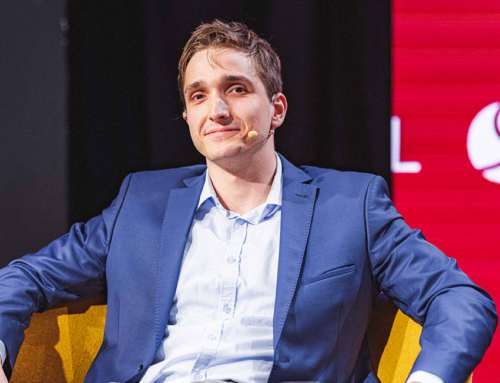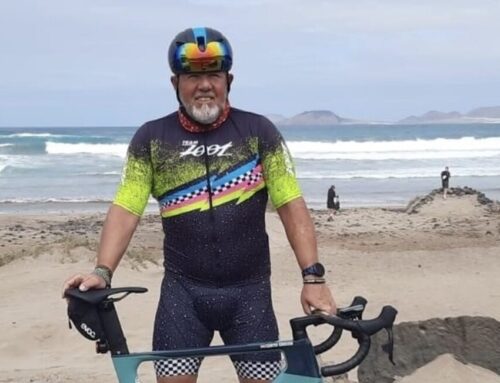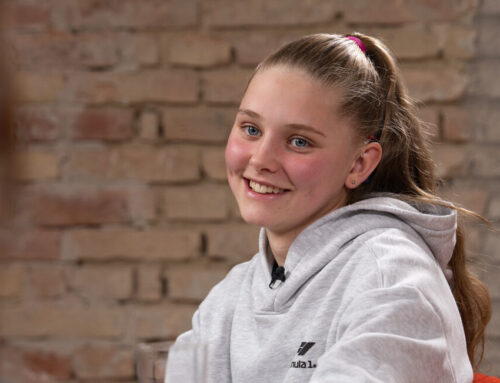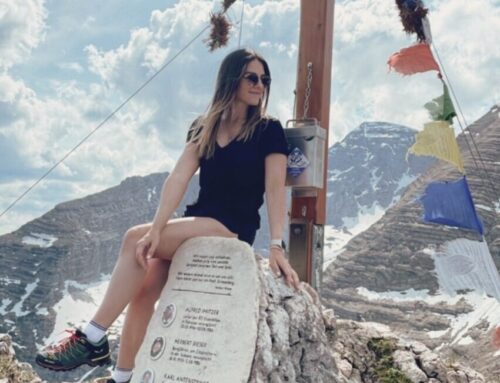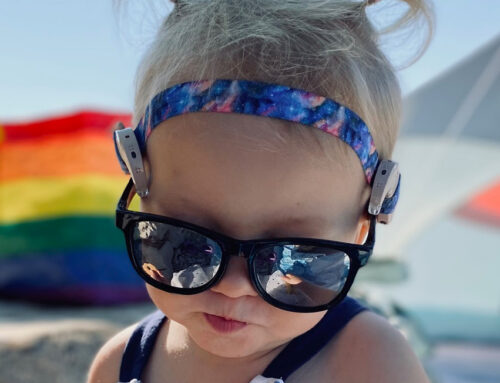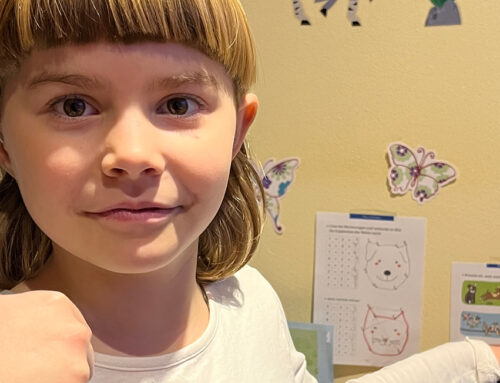Panel discussion of young CI-users at the EURO-CIU symposium
At the EURO-CIU 2024 symposium in Vienna, six teenagers and young adults gave an insight into their everyday lives with CI. As they were implanted as early as possible and well suported, they live a fully inclusive life and pursue academic careers – just like their peers with normal hearing!

It is so quiet in the lecture hall of the Novotel hotel at Vienna Central Station that you can hear the people sitting next to you breathing. And suddenly - frenetic applause! It is for the six young people on the podium who have given an insight into their lives and their emotional world.
In previous years, in addition to the older generation of European CI-users, some CI parents dominated the events of the European umbrella organization of CI self-help groups EURO-CIU. However, the children implanted back then are now young adults or on the point of becoming so. For this reason, there has recently been a growing desire to give this new generation of CI users a voice at the meetings.
And none of the people we invited as hosts cancelled! The young people were also very flexible in terms of language. For some of them, English is not the only foreign language they speak - and some of them chat so fluently that the written interpreting system and translation are difficult to follow.
Who are our new shooting stars of the European CI scene?
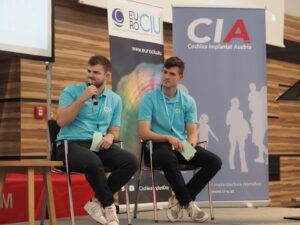
The twins and CI-users Alexander and Matthias Pusker found togetherness and an understanding environment helped them on their way into adulthood. ©AstridRo
The discussion was moderated by twins Alexander and Matthias Pusker, both 24 years old. Matthias is studying medicine; his brother Alexander is studying law. The two Austrians have been CI-users since they were 12 and 15 months old, respectively. The second implant followed shortly afterwards. Mariella Sturz from Vienna also describes her hearing situation as "pretty normal". She was also implanted at the age of two and received the CI on the second side when she was almost three years old. Today, the 27-year-old holds two Master's degrees and works as a lawyer at the Federal Ministry.
Melanie Fraisl from Lower Austria and Vittoria Bianchi from Italy are still at school. 17-year-old Melanie has been deaf since birth and received a cochlear implant when she was just under a year old; Vittoria, who is a little younger, has only been implanted five years ago, after noticing that her hearing aids are no longer strong enough. Nicolas Baiverlin from Belgium, now 26, received his first implant at the age of five, and the second five years later. They all handle the microphone with ease and look confidently into the audience. Nicola and Melanie already have podium experience from the last EURO-CIU workshop in Valencia, the others partly from theatre performances or other events.
"I speak many languages!" - School with CI
Contrary to some people's opinion, schools for the hearing impaired or special schools are not necessary for CI children - unless there are other impairments as well. Melanie explains that she was referred to a special school at the time. Thanks to the efforts of her parents, she was able to find a place at a mainstream school and is now preparing for her Matura. "You know, I can see, I can speak normally, I can ask questions. I speak Italian, English, Spanish, a little French and German," Vittoria adds. Additional teachers and FM systems, especially for foreign language lessons, were and still are used by most of them. Or therapeutic support , as in Nicolas' case, with which he also went through the school material again.
Mariella never had FM systems, not even at school: "I preferred to sit somewhere in the middle of the class. That way I could listen to the teachers, but also to the discussions and conversations of my classmates in the background. I always wanted to be able to follow all the conversations, even the less important ones." She also emphasizes the support not only from teachers and family, but also from her friends: "Especially when studying law! We compared notes so that I wouldn't miss anything."
Full inclusion in everyday life
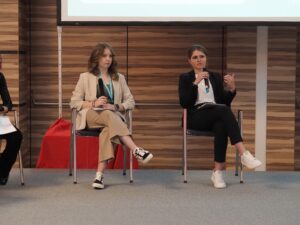
Pupil Melanie Fraisl and young lawyer Mariella Sturz ©AstridRo
Good friends are particularly important for young people. Friends who help, like Mariella´s, and friends with whom they can compete. Alex and Matthias had each other, and Vittoria's sister is also hearing-impaired, but unlike Vittoria, she manages well with hearing aids. Yet what happens if a CI child is the only hearing-impaired person in the family? "I grew up in an auditory environment. I don't have any CI users in my family or among my close friends," says Mariella. Nicolas explains: "My parents make an effort to speak clearly to me - my hearing friends don't."
Melanie talks about a school project where she met a hearing-impaired pupil in England. But apart from that, all participants in the dialogue maintain contacts that they met in self-help groups. Mariella certainly appreciates the connection to the international community: "My hearing impairment is the result of a genetic disorder called Usher syndrome, which leads to a combined hearing and vision impairment. I know many people affected worldwide who are in a similar situation and who are also my age. It's interesting and fun to meet them, talk to them and see how they deal with the challenges."
"Just follow your own dreams too!"
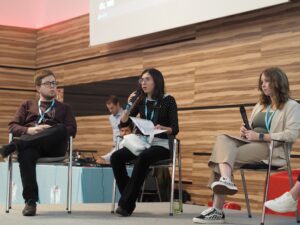
Belgian Nicolas Baiverlin, who is already working, and student Vittoria Bianchi from Italy ©AstridRo
"The biggest challenge of my life so far has been living with my brother for 22 years," Alexander jokes, before getting serious. "In addition to a uniquely understanding environment, this togetherness has perhaps also helped us to never experience anything as a real problem." That’s how he introduces the final round of questions about challenges and solutions. Vittoria was already a schoolchild when she received her first implant. "I was very scared," she remembers the day of activation as a challenge. She is now happy about it: "These two implants are helping me to improve my hearing. I'm currently learning English, I speak Italian - because I'm from Italy - and I can also speak Spanish quite well, as well as some French and German. Now I want to learn Turkish and Arabic!"
Nicolas admits that it is difficult for him to start a conversation when he meets someone new. And after school or now after work, he is often tired from the constant effort of focusing on conversations. His remedy: "Practise!" Since puberty, Melanie had the feeling, especially with new acquaintances, that she would be rejected because of her hearing impairment. "When I go out now, I wear my hair down so that my hearing aids aren't visible. Otherwise, I feel like I don't even get the chance to introduce myself."
"I don't see my biggest challenge in my deafness, but it is connected to it. I realized as a teenager that I had even more issues to solve than hearing, which has been solved," Mariella remembers the time when she was diagnosed with Usher syndrome. "When I had to accept that I was also confronted with a progressive loss of my photoreceptors, I realized what a positive effect the cochlear implant has on my life, as it would allow me to compensate for my diminishing eyesight," Mariella explains. "So, if you ask me about the biggest setback or the biggest challenge, then I would say: when I realized that there would be more challenges for me. But with motivation and a good support system, I can do it! Family, friends - they are important for me to cope with new things, to keep finding courage and to simply follow my own dreams." Mariella then shares her greatest wish with us: "That my remaining vision can be preserved, just as my hearing was once restored by the CIs."
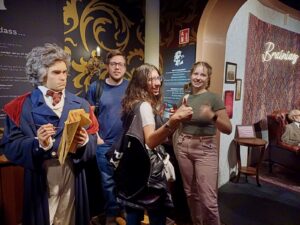
The international CI youth at Madam Tussauds in the Vienna Prater - Beethoven was also there... ©private

